Search This Blog
Sunday, January 31, 2016
La Fievre Monte A El Pao (aka Fever Mounts At El Pao) (1959)
After the governor (Miguel Angel Ferriz) of a small Caribbean island is assassinated, his widow (Maria Felix) begins a love affair with his former aide (Gerard Philipe in his final film). But the island's new leader (Jean Servais) has designs on the widow himself. Against this love triangle, a mutiny brews by the victims and political prisoners of the island's corrupt regime. Based on the novel by Henri Castillou and directed by Luis Bunuel. This little seen Bunuel film uses the romantic intrigues as a front for his look at how political idealism and political corruption come into conflict. Where does one draw the line when doing the "right thing" will also cost innocent lives? Do personal ethics take precedence over love? Where does one cross the line between political maneuvering and corruption? It's almost too much and Bunuel isn't always successful in balancing everything. Philipe represents political idealism, Felix represents romance and Servais represents corruption but the lines get uncomfortably blurred. Minor Bunuel perhaps but still well worth seeing. Two years later, Bunuel would make VIRIDIANA and move to the next stage of his career.
Anomalisa (2015)
Set in 2005, an Englishman (David Thewlis) now living in America arrives in Cincinnati to deliver a lecture on customer service at a convention. He's a rather dull and lonely man and unhappily married. But things change when he meets a young woman (Jennifer Jason Leigh) who stands apart from everyone else. Directed by Charlie Kaufman (BEING JOHN MALKOVICH) and Duke Johnson from Kaufman's screenplay. The film is animated with stop motion puppets and actor Tom Noonan doing the voices of all the film's characters except for Thewlis and Jennifer Jason Leigh. It's disconcerting at first. The characters move like a Ray Harryhausen stop motion monster in one of his fantasy films. At first, one wonders why all the characters even the women are voiced by Noonan but eventually that becomes clear late in the film. It's based on a theatrical piece written by Kaufman and I can see that doing it this way was the only way to make his play cinematic. It's a unique and contemplative piece and quite original, I'll give it that. But it's distancing and I can't say I liked it much. Admire yes, but like no. But I did like how the puppets had bodies that looked like real people instead of the perfect gymrat bodies we usually get in movies.
Saturday, January 30, 2016
Married Life (2008)
Set in 1949, a businessman (Chris Cooper) in a seemingly happy marriage wants to leave his wife (Patricia Clarkson) for a younger woman (Rachel McAdams) but he doesn't want to hurt her since she is so dependent on him ... or so he thinks. But is murder an act of kindness? And watch out for the best friend (Pierce Brosnan) who is a wolf in sheep's clothing. Based on the novel FIVE ROUNDABOUTS TO HEAVEN by John Bingham and directed by Ira Sachs, who also co-wrote the screenplay. This is a wonderful movie! Darkly and subtly comic with some keen psychological observations on marriage. It has the feel of a Hitchcock production (the novel, in fact, was adapted for a 1962 episode of his TV series), DIAL M FOR MURDER comes to mind. But the film is more concerned with a wry scrutiny of the state of marriage than suspense. Four different endings were shot for the film and I think they went for the right one. The others depended on a weak episode of irony. The acting, especially Cooper who's wonderful here, is excellent. There's a nice underscore by Dickon Hinchiffe and the period art direction and production design by Hugo Luczyc Wyhowski and Carol Lavallee respectively is impeccable.
Friday, January 29, 2016
Charge Of The Lancers (1954)
The Palm Beach Story (1942)
Although still in love with her husband who is a financial failure, a wife (Claudette Colbert) decides to leave her husband (Joel McCrea) and go to Palm Beach for a divorce. On the train, she meets an eccentric millionaire (Rudy Vallee) who is taken with her and he brings her on his yacht. But when they arrive in Palm Beach, they are greeted by his man hungry sister (Mary Astor) ..... and the husband who wants his wife back! This may well be my favorite Preston Sturges comedy. His trademarks are all in evidence, the rapid fire witty dialogue and the galloping pace with barely a moment to breathe. The movie sags a bit with the Ale And Quail Club sequence which isn't as funny as it thinks it is but it soon recovers. No surprise, Colbert and McCrea are in familiar territory so their performances are expectedly expert but the scene stealers are Vallee and especially Astor, who one doesn't think of as a comedienne but she's hilarious here. Screwball comedy at its best. With William Demarest, Franklin Pangborn and Robert Dudley.
Thursday, January 28, 2016
Purpose (2002)
The Innocents (1961)
An inexperienced governess (Deborah Kerr) is given the undertaking of caring for two fatherless children (Pamela Franklin, Martin Stephens) at a secluded country manor because their guardian and Uncle (Michael Redgrave) has no time for them in his busy life. But when the governess begins hearing and seeing things, she discovers the house and children harbor dark and horrible secrets. Based on the novella by Henry James with a screenplay by Truman Capote and William Archibald, this is how you adapt a classic book for the screen! Impeccably directed by Jack Clayton (ROOM AT THE TOP) and superbly shot by the great Freddie Francis, this is a ghost story for grown ups. Clayton isn't interested in giving us "Boo!" moments but in providing a richly dense atmosphere of spectral ambiguity. Is the governess attempting to purge her charges of the evil and corruption taught by a former valet (Peter Wyngarde) and his mistress (Clytie Jessop), both now deceased but reaching out to the children from beyond the grave? Or is she a sexually repressed spinster whose hysteria is the corruptive influence on innocent children? One thing is for certain ... this is Deborah Kerr's greatest performance and Clayton gets uncanny performances by from the talented children. With Megs Jenkins.
Wednesday, January 27, 2016
Grand Hotel (1932)
Tuesday, January 26, 2016
How To Make An American Quilt (1995)
Monday, January 25, 2016
Sol Madrid (1968)
Sunday, January 24, 2016
Summer Stock (1950)
An unmarried woman (Judy Garland) is struggling to work her farm all by herself when her spoiled sister (Gloria DeHaven) arrives with a troupe of actors to use the barn to rehearse a show. Directed by Charles Walters (EASTER PARADE), this is a Technicolor updating of the old "Hey gang! Let's put on a show!" musicals that Garland did with Mickey Rooney in the 1930s and early 1940s. As she had with Rooney, Garland has a strong chemistry with co-star Gene Kelly. They play off each other so effortlessly that they bring a believability that's often touching in their more romantic moments. That chemistry along with some first rate songs are enough to transform the mindless plot into something almost special. Garland also gets a chance to display her terpsichorean talents and while no Cyd Charisse, she more than holds her own with Kelly. While the movie may not be one of Garland's most memorable, the spectacular Get Happy number is one of the most memorable movie moments in her career. With Phil Silvers, Eddie Bracken, Marjorie Main, Ray Collins, Hans Conreid and Carleton Carpenter.
My Beautiful Laundrette (1985)
A young but unemployed Pakistani (Gordon Warnecke) living in South London talks his rich Uncle (Saeed Jaffrey) into letting him manage a small coin laundry in a rundown section of town. He also renews a romance with an old school friend (Daniel Day Lewis), a former right wing street punk. Based on an original screenplay by Hanif Kureishi (whose script was Oscar nominated) and directed by Stephen Frears, LAUNDRETTE takes a look at Thatcher's England, family, culture clash and racial tension while containing one of the most romantic gay love stories on film though that is not the focus of the film. The film manages to be charming while still addressing important and complex issues that plagued Great Britain under Thatcher's umbrella. The film retains the freshness which seemed so original in 1985. The film was also the first of the one-two punch (the other was ROOM WITH A VIEW) that indicated Daniel Day Lewis would soon become one of the great actors of his generation, a promise soon fulfilled. Funny, poignant and genuine. With Shirley Anne Field, Roshan Seth, Derrick Branche and Rita Wolf.
The Revenant (2015)
In 1823, a party of trappers and hunters are attacked by a group of hostile Arikara Indians. The handful of survivors manage to escape on a raft. But when a member (Leonardo DiCaprio) of the hunting party is seriously wounded after an attack by a Grizzly, he is left behind to be cared for by his son (Forrest Goodluck), a young hunter (Will Poulter) and a selfish untrustworthy hunter (Tom Hardy). But the cold hearted hunter leaves the wounded man for dead and thus begins a tale of revenge. It's a relentlessly brutal film so I can't say I "enjoyed" the experience but it's an imposing piece of cinema and Alejandro Gonzalez Inarritu continues to impress me with each new offering. On a visual and compositional level, it's one of the most stunning movies I've ever seen. Is there a better cinematographer than Emmanuel Lubezki working in films today? Inarritu avoids CGI as much as he can which makes for a far better movie experience. The acting is top notch with DiCaprio anchoring the film with his go for broke performance. The strong underscore by Ryuichi Sakamoto, Alva Noto and Bryce Dessner was unfortunately deemed ineligible by the Academy. An intense experience but not one I'm sure I'd like to do again. With Domhnall Gleeson, Arthur Red Cloud and Grace Dove.
Saturday, January 23, 2016
Cowboy Up (2001)
After serious injuries that almost killed him, a rodeo bull rider (Marcus Thomas) against the advice of his doctors returns to the rodeo. It's in his blood as both his father (Pete Postlethwaite) and older brother (Kiefer Sutherland) were also in the rodeo. Directed by Xavier Koller, the film has an authentic feel for the rodeo circuit but its protagonist is an arrogant jerk who causes heartbreak to a lot of people. In order to make this character remotely palatable, one would need a very strong and charismatic actor and Marcus Thomas just ain't him. The movie isn't much more than atmosphere as its characters are pretty stock. Sutherland is pretty good as the older brother as is Daryl Hannah as a sexually predatory barrel racer but both Molly Ringwald as Thomas's girlfriend and Melinda Dillon as his mother are wasted. If a stronger actor had been cast in the lead role, this might have been a pretty decent movie instead of a routine one. With Bo Hopkins and Russell Means.
Friday, January 22, 2016
Honeymoon Hotel (1964)
Le Sauvage (1975)
In Venezuela, a woman (Catherine Deneuve) has second thoughts about her impending marriage and with her fiance (Luigi Vannucchi) in pursuit, she seeks refuge at a desert island populated by a man (Yves Montand) in hiding from his wife (Dana Wynter) and her business partners. A major hit in France, Jean Paul Rappeneau's comedy benefits from the colorful Venezuela and Bahamas locations. But the film's attempt at screwball comedy is only marginally successful. Deneuve's brattish runaway bride is irritating in the way Carole Lombard was sometimes irritating in her screwball comedies (MY MAN GODFREY, TWENTIETH CENTURY) and I was often wishing that Montand would just kick the crap out of her! It's a dubious achievement of sorts, I suppose, to make Deneuve unappealing. Movies about a mismatched male and female (whether by temperament or class) alone on a desert island have been made on a regular basis since the silent era so one pretty much knows the terrain but I wasn't prepared for the slapdash ending. With Tony Roberts, Bobo Lewis and Vernon Dobtcheff.
Thursday, January 21, 2016
The Cowboy And The Lady (1938)
A wealthy New York socialite (Merle Oberon) is staying at her Palm Beach house in Florida when on impulse, she goes on a blind date with her two maids (Patsy Kelly, Mabel Todd). Passing herself off as a ladies maid, she hooks up with a rodeo cowboy (Gary Cooper) but when a genuine romance develops, she is hesitant about telling him who she really is. Directed by H.C. Potter, this is a rather flabby romantic comedy. At times, the film seems to be Capraesque (not meant as a compliment) and it's at its worst when it attempts to do the "little people" vs. the upper classes bit. For a moment, the film seemed to be brave enough to go for a downbeat ending but no, within minutes we're given the feel good cornball finale to send the audience home happy. Cooper overdoes the dim hick bit and poor Oberon just doesn't have a comedienne's core. There's a long scene that requires a lot of physical comedy that someone like Lucille Ball or Carole Lombard could have easily nailed but Oberon comes off as awkward. The Alfred Newman underscore was Oscar nominated. With Walter Brennan, Harry Davenport and Fuzzy Knight.
The Paleface (1948)
Calamity Jane (Jane Russell) is offered a pardon from the government if she cooperates by finding out who is selling guns to the Indians. When the man who was supposed to pass as her husband is murdered, she dupes a dentist (Bob Hope) into unknowingly taking his place. Directed by Norman Z. McLeod, this lively comic western was co-written by Frank Tashlin and his animated touch is obvious. Like most of Hope's vehicles, the thin plot is merely an excuse for endless quips, visual gags and all around silliness ... that's a good thing! Hope and Russell exchange traditional roles with Russell as the brave gunslinger and Indian fighter with Hope taking on the traditional female role. The stereotypical portrayal of Indians is no longer politcally correct but one can't take offense as just about everybody in the movie are played for laughs. The film features the Oscar winning song Buttons And Bows. Popular enough to spawn a sequel in 1952 and a remake in 1968 with Don Knotts in Hope's role. With Robert Armstrong, Iris Adrian, Nestor Paiva and George Chandler.
The Sun Also Rises (1957)
Set in 1920s Paris, a journalist (Tyrone Power) who was rendered impotent by an injury in WWI is part of the "lost generation": a group of disoriented and aimless survivors of WWII during the early post war years. His comrades includes the sexually avaricious woman (Ava Gardner) he loves but can never satisfy, his college chum (Mel Ferrer), an alcoholic (Errol Flynn) and a fellow writer (Eddie Albert). Based on the novel by Ernest Hemingway and directed by Henry King (CAROUSEL). Hemingway's novel, like Fitzgerald's THE GREAT GATSBY, appears to be one of those books that defy a proper film adaptation. Unlike GATSBY however (which seems to get a remake every couple of decades), outside of a 1984 telefilm, film makers have left the book alone and this is the only filmed adaptation. Surprisingly for the 1950s, an era when all period films looked like the 1950s, the movie does a fairly decent job of getting the look of the 1920s right, notably in the costumes and hair as well as art direction. To the film's credit, the screenplay by Peter Viertel appears to have been written by someone who actually understands Hemingway's book. So why doesn't it work? Hemingway's simple and direct prose style hasn't found a cinematic approximation. Indeed, the film seems almost bloated as if the film makers felt the movie had to be "important". Power and Gardner are problematic as the leads. Gardner gets by by her movie star presence but although way too old for the part, Power does bring an honest emotional core to the part. The film's best performance comes from Flynn though at this stage of his career he looked like Gardner's father rather than her fiance. With Gregory Ratoff, Marcel Dalio and Juliette Greco, the most talented of Daryl F. Zanuck's "discoveries".
Tuesday, January 19, 2016
The Company Of Wolves (1984)
A young girl (Sarah Patterson) dreams that she is living in a 19th century rural village where the forest is filled with wolves. Her grandmother (Angela Lansbury) tells her that wolves are not always what they seem to be. Based on the short story by Angela Carter who co-wrote the screenplay with director Neil Jordan whose second feature film this is. The film is a horror film in only the subject matter. Using the Charles Perrault's classic story of Little Red Riding Hood as a basis, the film is really about the sexual awakening of a pubescent girl whose erotic fantasies take the form of a fairy tale. The wolves representing the sexuality of the male. The dream contains four short story interludes thus we have a story twice removed from reality. Shot on a tight budget, the film has a lustrous look as Jordan and his cinematographer Bryan Loftus turn a sound stage into a mysterious and dream like wonderland. A very unique film. The highly effective score is by George Fenton. With Terence Stamp, David Warner, Micha Bergese and Tusse Silberg.
Butterfield 8 (1960)
A promiscuous "model" (Elizabeth Taylor in an Oscar winning performance) is having an affair with a married businessman (Laurence Harvey). When it seems to be moving toward a serious enough relationship that he's willing to leave his wife (Dina Merrill), it seems they can't get past her past. Based on the novel by John O'Hara and directed by Daniel Mann (THE ROSE TATTOO). The movie is a glossy unfaithful rendering of the O'Hara novel which was very much steeped in the 1930s but the film was updated to a modern (1960) setting. The film seems dishonest in its telling because it dances around the central core of the story rather than just putting it out there. It doesn't help that the two male leads are just awful. To be fair, Harvey seems grossly miscast (his tough act comes across more as bitchy than tough) and Eddie Fisher (Taylor's then husband) recites his lines dutifully but superficially. Taylor herself is actually very good but she seems to be acting in a vacuum without a movie to support her. With Betty Field, Mildred Dunnock, Susan Oliver, Jeffrey Lynn and Kay Medford.
Monday, January 18, 2016
Beyond The Valley Of The Dolls (1970)
A fledgling all girl rock group (Dolly Read, Cynthia Myers, Marcia McBroom) and their manager (David Gurian) head out to Los Angeles to break into show business and also find the aunt (Phyllis Davis) of one of the trio (Read). Soon, they become seduced into the glamorous world of sex, drugs and rock 'n roll. Despite the title, the film is not a sequel to the Jacqueline Susann novel and film version of VALLEY OF THE DOLLS. While they share a show business background, softcore porn king Russ Meyer's first studio film is a tongue in cheek musical satire with a screenplay by the late film critic Roger Ebert. It amuses me that many people still don't "get it" and refer to BEYOND THE VALLEY OF THE DOLLS with the hyperbolic "one of the worst films ever made" tag. Clearly if one truly believes that they haven't seen very many movies. Ebert's screenplay is intentionally outrageous and out there, satirizing everything from pop culture to soap operas and the film's hilariously pious coda where we're lectured on our moral shortcomings is a howler! A unique one of a kind gem of a movie. With John Lazar, Michael Blodgett, Harrison Page, Charles Napier and Edy Williams.
Sunday, January 17, 2016
Diaboliquement Votre (aka Diabolically Yours) (1967)
After waking up from a coma following a car crash, a man (Alain Delon) has amnesia. His beautiful wife (Senta Berger) and his best friend (Sergio Fantoni) help him to get his memory back by providing him with information. But why do his dreams of another life not resemble what he is being told? The cinematic swan song of director Julien Duvivier (PEPE LE MOKO) is a neatly done thriller that might have made for an excellent B&W film noir in the 1940s right down to its code required ending. Based on the novel PERSECUTION MANIA by Louis C. Thomas, this fairly predictable crime thriller doesn't reach Hitchcockian heights but it would have made a solid hour long episode on the ALFRED HITCHCOCK HOUR. As it is, it's a lightweight effort with an attractive pairing of Delon and Berger at its center. I wouldn't say seek it out but if you run across it, you could do worse.
45 Years (2015)
Saturday, January 16, 2016
Tim (1979)
Friday, January 15, 2016
Merci Docteur Rey (2002)
Set in Paris, the son (Stanislas Merhar) of an American opera singer (Dianne Wiest) is invited by an older man (Simon Callow) he's never met to hide in a closet and watch him have sex with a younger man (Karim Saleh). Meanwhile, a neurotic middle aged actress (Jane Birkin) obsessed with Vanessa Redgrave (who plays herself in the film) is seeing a psychiatrist (Ruth Handlen) to overcome her obsession. Both will have to deal with shocking and unexpected deaths. It's best not to try and make sense of this absurdist black comedy, just sit back and enjoy! It's the kind of screwball comedy where coincidences continue to pile up until your head is spinning. Written and directed by Andrew Litvack, it's both subtly witty and over the top and with Paris as a backdrop, it's easy on the eyes too. Sadly, it's a film that never found an audience, it wasn't even released in the U.S. (it has a little over 400 votes on the IMDb) though it did the film festival circuit. It's a film that cries out "cult movie". If it comes your way, take a chance on it. With Bulle Ogier, Jerry Hall, Vernon Dobtcheff and Didier Flamand.
The Golden Horde (1951)
Firestarter (1984)
A father (David Keith) is on the run from a secret government agency with his young daughter (Drew Barrymore). While in college, he and his future wife (Heather Locklear) were given a drug as part of a government experiment which mutated their genes enough that their daughter has a power that the government wants ..... she can set fires just by willing it. Based on the Stephen King best seller, the premise is intriguing enough to push through the far fetched plot and often poor writing. In a movie about a government conspiracy, you better make sure that the government agents are realistic enough to be threatening. Here, they're practically cartoonish they're so inept. The film could also have used a stronger director than Mark L. Lester (CLASS OF 84). He doesn't bring enough tension to the film. Then there's the innocuous David Keith who leaves a hole on the screen. On the plus side, there's Barrymore and a restrained George C. Scott as a genuinely creepy government assassin. The film's pyrotechnic finale is very well done, I'll give it that. I'm not much on synthesizer scores but Tangerine Dream's underscore really complements the film. With Martin Sheen, Art Carney, Moses Gunn, Antonio Fargas and Louise Fletcher.
Thursday, January 14, 2016
The Guns Of Fort Petticoat (1957)
Pitfall (1948)
An insurance executive (Dick Powell) would seem to be living the American dream. Nice job, pretty wife (Jane Wyatt) and a son (Jimmy Hunt), nice suburban home. But he's dissatisfied with the banality of his daily existence. But investigating a case of insurance fraud, he meets a beautiful model (Lizabeth Scott). That meeting will turn into a complicated web of jealousy, lies and murder. Based on the novel by Jay Dratler (LAURA) and directed by Andre De Toth, this is a film noir that goes off the beaten path. Powell's insurance investigator is an ordinary husband and father, not a gumshoe or a criminal, who finds himself through circumstances and incredibly bad decisions caught in a web of deceit that upends his whole life. Scott's femme fatale is more sympathetic than the usual noir heroine. Scott's normally stiff acting is put aside and she's very good here in what probably is her best performance. She's real here, not a pouting vixen luring men to their doom (at least not intentionally). But it's two supporting performances that stand out. Raymond Burr's creepy psychopathic ex-cop makes your skin crawl, his big burly imposing physique indicating the dangerous animal he is. Then there's Jane Wyatt who's the true heroine of the film. Unlike her FATHER KNOWS BEST role, she's not the bubbly housewife but a strong, sensible no-nonsense woman whose outrage at her husband's indiscretions is justifiable and palpable. Her strength is a nice contrast to Scott's helpless babe. With Ann Doran, John Litel and Byron Barr.
Tuesday, January 12, 2016
Charley Varrick (1973)
The Pit And The Pendulum (1961)
In 16th century Spain, a young man (John Kerr) arrives at the remote seaside castle of his brother in law (Vincent Price). He is suspicious of the circumstances regarding his sister's (Barbara Steele) death and wants more information. But his sister's "ghost" seems to be haunting the castle. There's very little resemblance to the Edgar Allan Poe story in Richard Matheson's adaptation. But Matheson's screenplay is very effective nonetheless and director Roger Corman brings a flamboyant spirit to the proceedings. The production design and art direction of Daniel Haller is almost a character in itself and Floyd Crosby's strong lensing makes use of tinted frames during the flashback sequences to give it a surreal look and the contribution of Les Baxter's underscore can't be ignored. So if the movie isn't faithful to Poe's slight short story, at least the film captures the spirit of Poe and that's an accomplishment not to be dismissed. Colorful and luxurious, this remains one of the highpoints of 60s horror cinema. With Luana Anders and Antony Carbone.
Monday, January 11, 2016
The Truth About Women (1957)
Sunday, January 10, 2016
Beasts Of No Nation (2015)
In West Africa, a small boy (Abraham Attah) and his family live in a village that is caught between warring factions. The government troops and the rebels. When government troops come and decimate his village and kill his father (Kobina Amissa-Sam) and older brother (Francis Weddey), the boy flees into the countryside. But he is captured by the rebels and turned into a child soldier. Perhaps I would have been more impressed with the film if I hadn't seen Kim Nguyen's stunning REBELLE, also known as WAR WITCH, which was an Oscar nominee in the 2012 Foreign Language film category. This film covers the same territory but it's more melodramatic and more "Hollywood" (Netflix was one of the production companies involved). At about the halfway mark (the film runs over two hours), the film had made its point. The horror of war and it's effect on innocent children especially those who are turned into child soldiers and taught to kill their own people. What could another hour do but give me more of the same so I ejected it from my DVD player (it was a SAG awards screener). If I missed out on a masterpiece, I'll survive but I did like what I saw of Idris Elba's performance. Directed by Cary Joji Fukunaga.
The Desert Song (1943)
An American journalist (Dennis Morgan) in Morocco has another identity. He is also the masked El Khobar, the rebel leader of a tribe of desert Riffs fighting against their French oppressors. The 1926 operetta by Sigmund Romberg was a huge hit and had several revivals on Broadway. This is the second film version, the first was 1929 and there would be yet another remake in 1953. Directed by Robert Florey (THE COCOANUTS), the plot has been adapted to be more topical with the addition of Nazis using forced Arab labor to build a railroad for their nefarious purposes. Most of the songs have been jettisoned and the film comes across as a typical 1940s exotic adventure flick rather than a musical. Indeed, the songs often seem extraneous. But shot in gorgeous three strip Technicolor, it's certainly an eye popper and there's one scene, when Bruce Cabot takes Irene Manning to a local Arab dive that is a visual feast (with some nice choreography by Leroy Prinz) and a good example of how to edit a scene. With Faye Emerson, Gene Lockhart, Marcel Dalio, Victor Francen and Lynne Overman providing unnecessary comedy relief.
Saturday, January 9, 2016
Return From Witch Mountain (1978)
After he uses his supernatural powers to save the life of a falling man (Anthony James), a boy (Ike Eisenmann) is kidnapped by a power hungry scientist (Christopher Lee) and his money hungry assistant (Bette Davis). Their intentions are to use the boy's power for both power and money but the boy's sister (Kim Richards) uses her supernatural powers to track him down. A sequel to Disney's 1975 hit ESCAPE FROM WITCH MOUNTAIN, this is a pretty lame movie. Everyone in the movies behaves as if they have the I.Q. of a domesticated turkey and if you told me the script was written by an 11 year old, I'd believe you. But fortunately for the grown ups, there are Bette Davis and Christopher Lee in the only movie they did together. As Disney villains, they're rather toothless but you can't Disneyfy these two! They bring vinegar to their roles and if that's about all they're allowed to do, their presence and professionalism elevate the film. Qualities which are need to compensate for the awful child actors who I suspect we're supposed to find adorable. Directed by John Hough (WATCHER IN THE WOODS). With Jack Soo and Denver Pyle.
The Tempest (1960)
The overthrown Duke of Milan (Maurice Evans), who is also a sorcerer, has lived on a remote island for over a decade. His only companion is his daughter (Lee Remick). He is served by a sprite (Roddy McDowall) and a deformed "monster" (Richard Burton). But when his brother (Paul Ballantyne) who deposed him and his companions are washed ashore by a sea storm, the sorcerer sees a chance to exact revenge. Directed by George Schaefer, this is an abridged version of Shakespeare's play running under 90 minutes. It's airy and lucent and if at times it seems rushed, it's an opportunity to see Burton, McDowall and Evans strut their stuff. Only the lovely Remick seems unsure of herself, Shakespeare's lines don't seem to come as effortlessly from her lips as it does to the rest of the cast. Hardly the definitive TEMPEST on film but most other versions have been adaptations like FORBIDDEN PLANET or Paul Mazursky's TEMPEST rather than a straight on presentation. With Tom Poston, Liam Redmond, William Bassett and Ronald Radd.
Impromptu (1991)
When the writer George Sand (Judy Davis) first hears the music of Chopin (Hugh Grant), she becomes determined to make him her next lover. To this end, she invites herself to a house party in the country being hosted by a somewhat pretentious Duchess (Emma Thompson). Unfortunately, others will be there including two of her ex-lovers (Mandy Patinkin, Georges Corraface) and Franz Liszt (Julian Sands) and his mistress (Bernadette Peters). This stylish comedy of manners from director James Lapine and writer Sarah Kernochan (it's an original screenplay) is right on the money during the country house party scenes but once that section is regretfully over, it not so much stumbles as lose steam and slowly chugs to the finish line. It's not a serious look at these legendary artists (though I'm not sure Kernochan thought so) but a rather entertaining romp with historical figures. The film offers its cast an opportunity to dress up and play act and while it never quite manages to be as good as its beginning promises, I liked it quite a lot. With Anna Massey, Anton Rodgers, Ralph Brown and Elizabeth Spriggs.
Friday, January 8, 2016
Monsieur Ripois (aka Knave Of Hearts) (1954)
A Frenchman (Gerard Philipe) in London is a chronic womanizer. He'll say and do anything to get a woman to sleep with him. As his wife (Valerie Hobson) is away getting a divorce, he attempts to seduce her best friend (Natasha Parry) by playing on her sympathies and telling her about his sex addiction. It's fortunate for Rene Clement's amusing comedy that the immensely appealing Gerard Philipe is playing the title role because the character is an amoral and selfish creature with little concern for the feelings of his conquests. But with the charming Philipe in the part, it's hard not to like him and by the end of the movie, we're almost sympathetic to him. It's almost a rough blueprint for ALFIE (1966). Clement shot the film twice, in English and in French, and I only had access to the French language cut but since the British actors are speaking French rather than being dubbed, it was okay. With Joan Greenwood, Margaret Johnston and Germaine Montero.
Thursday, January 7, 2016
Things To Come (1936)
Wednesday, January 6, 2016
Chubasco (1967)
After he's arrested for assaulting a cop, a judge (Edward Binns) gives a delinquent (Christopher Jones, RYAN'S DAUGHTER) a second chance and sends him to work on a tuna boat. Meanwhile, he and his girlfriend (Susan Strasberg) must hide their romance from her disapproving father (Richard Egan). Written and directed by Allen H. Miner, a director better known for his work in episodic television rather than feature films, this potboiler combines a Romeo And Juliet romance with some high sea adventure. The romance is rather a cliche but if you ever wanted to know what life is like on a tuna boat hunting fish down the Pacific, this is the movie for you. Christopher Jones in his feature film debut can't help but come across as a James Dean wannabe. But the movie was never designed to be anything but a programmer and in spite of some good touches (the scene where Jones is told of his grandmother's death is nicely done), it's not a film that will stick with you. There are two performances that stand out: Ann Sothern as lusty madam and Joe De Santis as an old fisherman. William Lava's underscore adds some quality to the film. With Audrey Totter, Simon Oakland and Preston Foster.
Come Back, Little Sheba (1952)
A recovering alcoholic (Burt Lancaster) lives with his chatty if slovenly wife (Shirley Booth). But when a pretty young college student (Terry Moore) rents a room in their home, she ignites a small flame that will eventually shatter their marriage. Based upon the Broadway play by William Inge and directed by Daniel Mann (BUTTERFIELD 8), this is one of those relatively rare instances where the original star of the Broadway show (Booth) was allowed to preserve her performance on film. Pauline Kael once wrote that it wasn't much of a movie but a setting for Booth's performance but I don't think that's quite fair. Inge's play and Ketti Frings' adaptation of it for the screen is a solid piece of drama. But there's no getting around the fact that Booth's bravura performance, which won her a best actress Oscar, takes no prisoners. Alas, poor Lancaster can't hold his own with her. Not that he's bad, he's not but it's just that he's so completely miscast that he fades. Watching him, I couldn't help but think how perfect Fredric March or maybe even Spencer Tracy would have been. But Lancaster was there for box office insurance, this was Booth's feature film debut and she had no box office clout. With Richard Jaeckel and Philip Ober.
Tuesday, January 5, 2016
Odd Man Out (1947)
Having escaped from prison, one of the leaders (James Mason) of an Irish revolutionary organization (not specifically named but clearly the IRA) is in charge of robbing a mill to obtain money to fund the organization. But things go horribly wrong and dying, he spends a long cold night trying to find solace and the film is as much about the people he encounters during his journey as much as it is about him. This might be Carol Reed's best film. It's a beautifully sustained piece of work and with one exception (Robert Newton), impeccably acted down to the very smallest roles. Reed is assisted in this masterwork by Robert Krasker's superior chiaroscuro cinematography and William Alwyn's expert score which propels the film forward. Mason achieved stardom as the brooding anti-hero of some Gainsborough melodramas but it was ODD MAN OUT that allowed him to show that he could be a great actor, too. I would assume anyone remotely interested in cinema must have seen this by now but if you haven't, see it! You won't be disappointed. The cast, the cream of Irish actors, includes F.J. McCormick (very good), Cyril Cusack, Dan O'Herlihy, Fay Compton, Robert Beatty, Denis O'Dea, William Hartnell and in her film debut, Kathleen Ryan.
Monday, January 4, 2016
Dressed To Kill (1980)
Sunday, January 3, 2016
The Big Short (2015)
Saturday, January 2, 2016
Ex-Machina (2015)
A computer programmer (Domhnall Gleeson) wins a lottery to the secluded home of his company's CEO (Oscar Isaac). Upon his arrival, he's asked to administer some tests to a new AI (artificial intelligence) robot (Alicia Vikander, THE DANISH GIRL) that will determine her "humanity". But that's just the tip of the iceberg. This terrific piece of science fiction somehow slipped under my radar when it was released early last year. I may be late in catching up with it but all I can say is ..... wow! I was hooked right from the beginning and found it compelling to its final moments. The directorial debut of screenwriter Alex Garland, probably best known for his screenplay to 28 DAYS LATER, is a tight (there are only 3 major characters and one supporting one) and economical piece of film making that is both familiar in the sense in that you think you know what's going to happen but fresh in its ability to still surprise you. The film is anchored by two excellent central performances from Gleeson and Vikander. Isaac's character is too broadly acted and while it serves as a nice contrast to the delicate underplaying of Gleeson and Vikander, it still seems actor-y. But that's a minor quibble. With Sonoya Mizuno.
Subscribe to:
Posts (Atom)
.JPG)










.JPG)
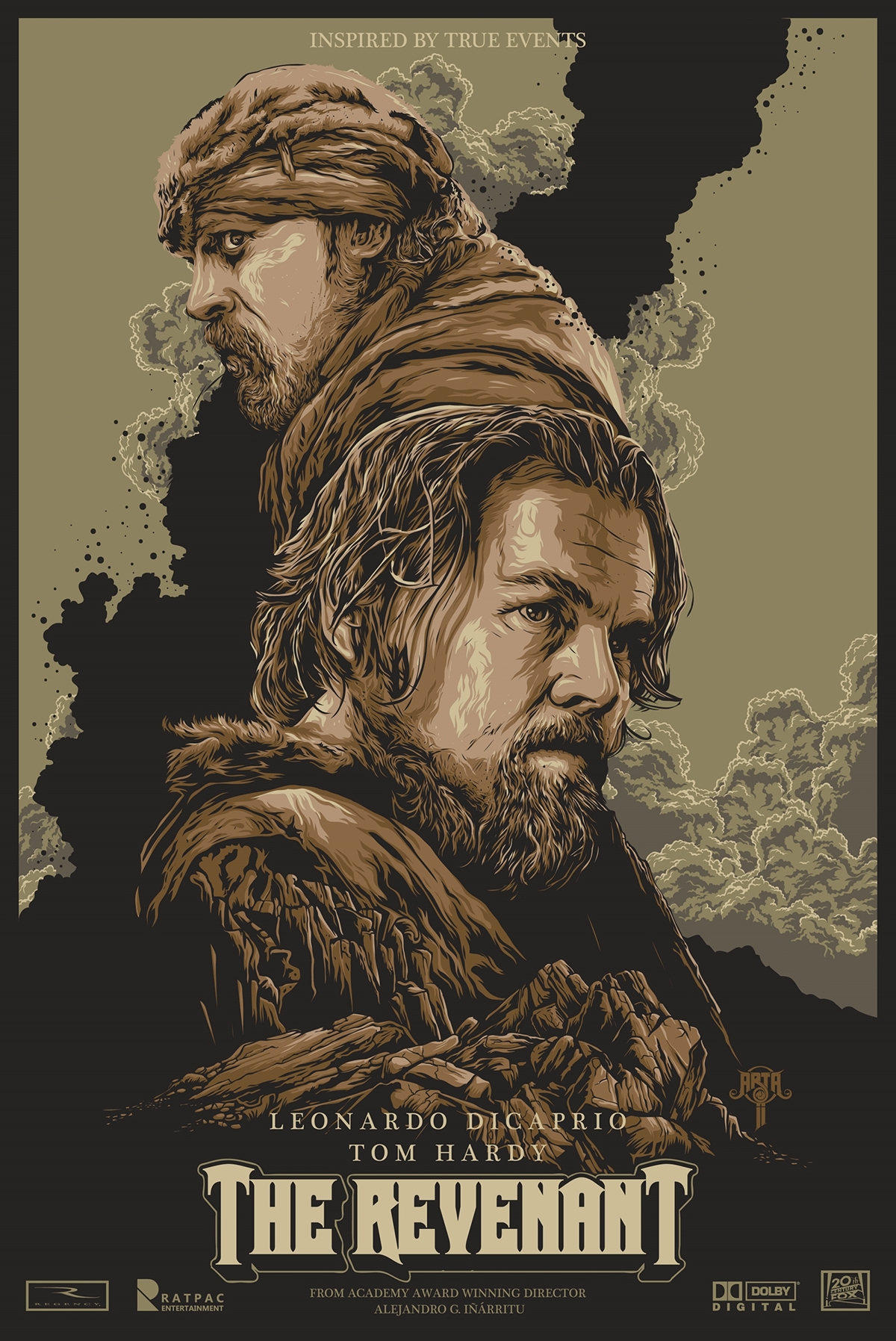

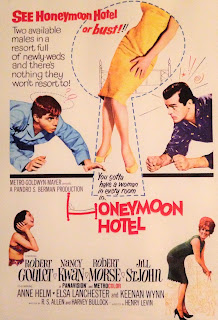


_02.jpg)



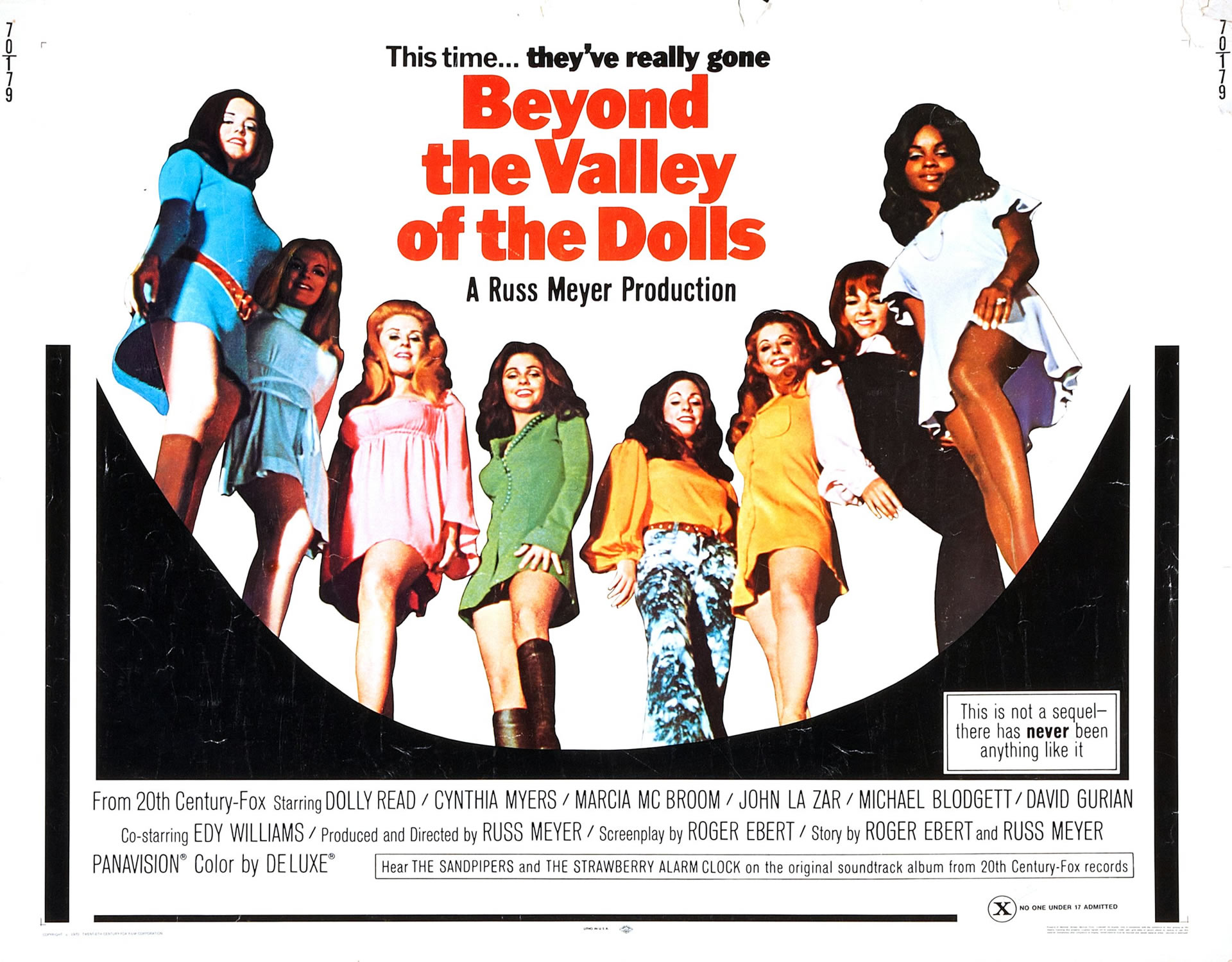

.jpg)

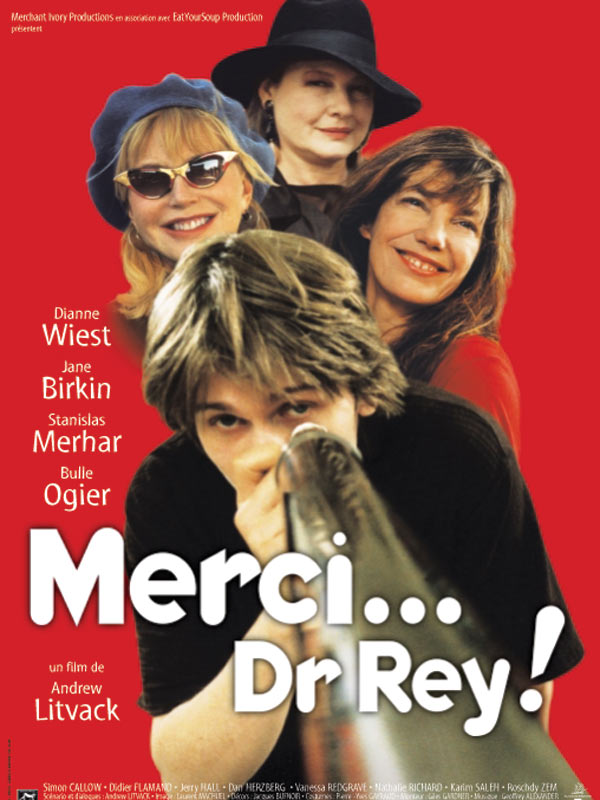


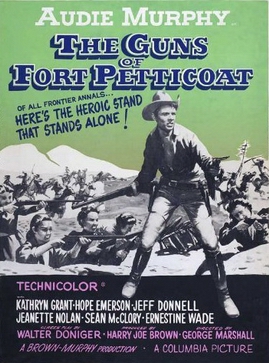
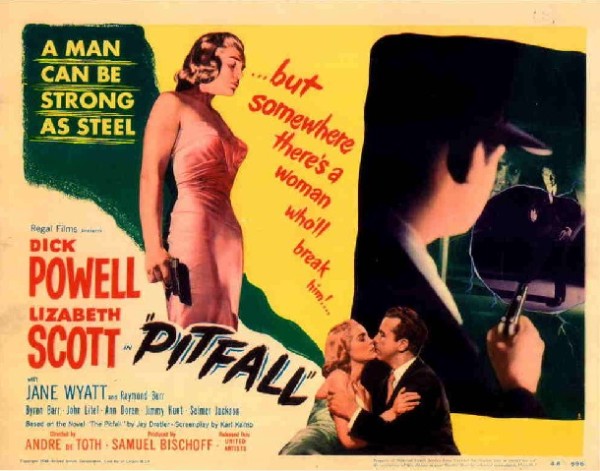


.jpg)


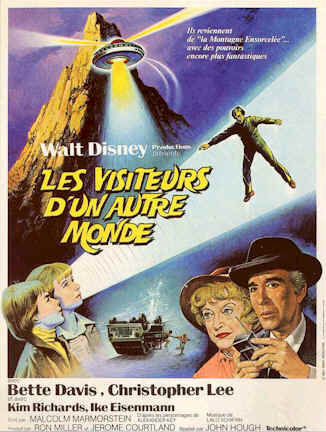

.JPG)


.JPG)



.png)
